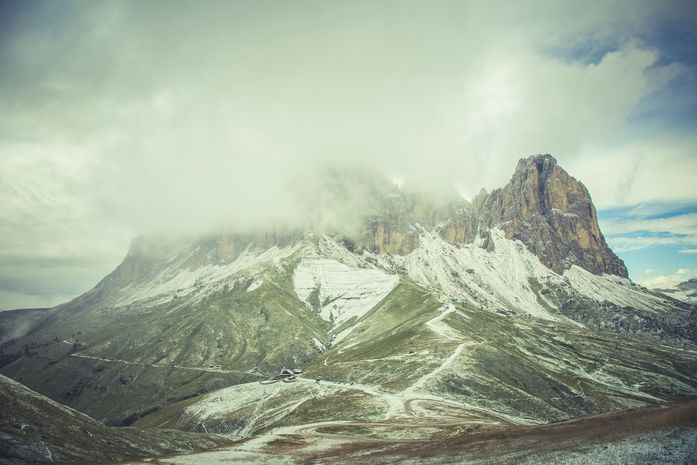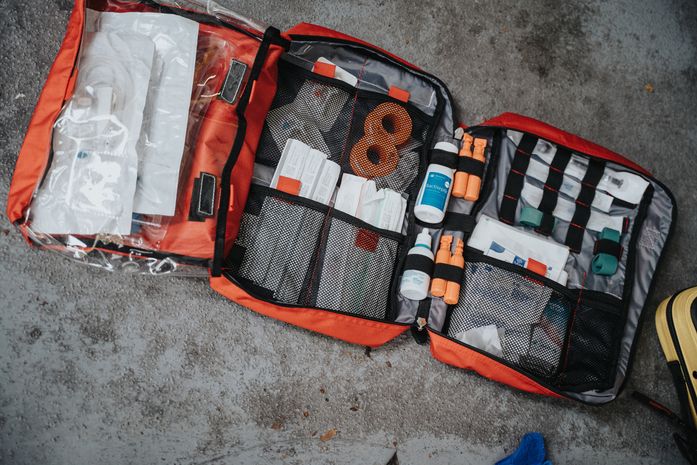Building a backpacking survival kit is essential for all hikers and backpackers. While deciding on what to put in the survival kit, you must consider the rule of threes. This rule spells out how long you can stay without the necessities as follows:
- Air – three minutes
- Shelter – Three hours
- Water – Three days
- Food – Three weeks.
However, we understand that people have different survival spans, and these numbers are just approximations. This information, however, shows what you should prioritize should you find yourself in an emergency.
Backpacking survival kit for the wilderness
You should first make sure you can breathe well, find shelter to avoid freezing, hydrate sufficiently, and finally think about what you will eat.
Here are some challenges you might face while hiking and backpacking, which make it necessary to build a backpacking survival kit.
Challenges that backpackers are more likely to face

Strict budget
Working with a strict budget is the biggest challenge you will face while backpacking. Unless you have been saving for a lifetime, hiking and backing can be expensive without proper planning. You want to ensure you have enough money when you are far away from home.
Getting a comfortable sleeping space
Good sleep is paramount, but backpackers must do without it on most days. Sleeping in a tent in the jungle might sound fun and adventurous, but most hikers confess to not getting enough sleep because part of their senses remains awake while listening to the surroundings.
Language barrier
While hiking, you will traverse many regions, and in some places, you will come across communities that do not speak or understand your language. The language barrier becomes a problem when you need to ask for directions. It is frustrating when no one gets what you are saying.
Homesickness
Thru-hikers stay away for even five months, and when things get tough on the trail, you will miss home. You will miss freshly cooked food, a comfortable bed, and the company of family and friends.
Facing the unexpected
Unexpected events happen every day, but it is different when you are in the middle of nowhere. Natural disasters can cause road closures and disrupt your journey. Worse is when you get locked up in an area and have to wait until the issue is cleared to continue with the journey.
Illness and injuries
We recommend going for medical checks before setting out, but this does not guarantee that you will not fall sick or get injured. Your body can react to food, change of weather, or you can even fall and get injured.
Insecurity
While authorities promise backpackers that the designated trails and camping areas are safe, insecurity can still be an issue. Insecurity, in this case, includes thieves getting away with your luggage or being mugged and losing all your money and valuables.
Altitude sickness
Experienced backpackers know their limits, but new hikers are more likely to suffer from altitude sickness. You will know you are getting altitude sickness when you start feeling extremely fatigued and nauseous and have a throbbing headache.
How to Build a Backpacking Survival Kit
Lost hiker survival kit
Get a Compact First Aid Kit

The first item you should consider when building a backpacking survival kit is a first aid kit containing wound dressing items, medication, and antiseptics. Since this is a survival kit, all items must be compact and portable (Buy here).
A survival first aid kit must contain the following items:
- Gaffer Tape
- Quikclot
- Zinc Oxide tape
- Scissors
- Antiseptic wipes
- Antibiotic ointment
- Painkillers
Water and Food
As you go out hiking, always make sure you have enough food and water. Because of the energy you use to trek and climb, you risk getting emaciated and dehydrated, both of which are life-threatening.
Pack food that can last you an extra three days, just in case you find yourself in an emergency that will delay your plans. The food should be non-perishable and portable. Pack some carbs, high-protein snacks, and glucose sachets for when you run out of food and still need the energy to keep going.
Survival straw
A survival straw is an essential item in the backpacking survival kit, especially since you might not be able to carry enough water to last the whole journey. A survival straw will enable you to drink water from streams and lakes without catching a stomach bug.
Get a Life Straw personal water here.
We recommend you have at least two straws in your backpack and avoid using them when unnecessary.
A fully charged power bank
Keep a charged power bank in your survival backpack, and avoid using it when it is not an emergency. Your phone can go off while you are on the trail, but you do not have the urgency to communicate. In this case, you can wait until you get to the next town to charge the phone; do not use the power bank.
Extra cash strapped in a different place
We have heard of cases where hikers were robbed of all their belongings, including money. If you encounter such a misfortune, you will get stranded. Always make sure you have some cash hidden somewhere within your inner garments.
The amount should cater for your journey back home or to the nearest town, where you can call family and friends and ask them to send you supplies or help you get back home.
Tools
You must carry some portable tools in your backpacking survival kit. The tools are supposed to help you navigate through obstacles, stay safe, and even send a signal for possible evacuation. Avoid having them in big sizes, as they may not fit in the survival kit.
- Trekking poles
- Pliers
- Army knife
- Rope
- Signal mirror
You can get an all-inclusive survival tool kit here
A reliable source of light and fire
To survive in the middle of nowhere, you need a reliable source of fire and light to keep you warm, cook your food and help you navigate while keeping wild animals away.
Pack extra batteries for your headlamp, an additional fire starter or waterproof matchbox, a tactical flashlight, and emergency candles. If you get lost, you can set up your camp, light the fire, and hang the lamps outside the tent.
Warm Clothes
Pack an extra set of warm clothes in the backpacking survival kit to ensure you do not get too cold if you are stranded at night (Check here). Hypothermia can be fatal, especially when you cannot reach emergency evacuation services in good time.
Alongside the warm clothes, also throw in a waterproof jacket if it rains and you have not yet found your way out. If your clothes get wet and you do not get hypothermia, you might catch respiratory diseases such as pneumonia which can also be fatal within a short time if it is not treated early.
Map and Compass
We can never insist on the importance of having a map and a compass while going out there for hiking and backpacking. The traditional compass is the most effective, but for the map, you can use the one on your phone, as long as the phone doesn’t run out of charge (Buy one here).
GPS devices are an alternative but always keep a real compass and map in the survival backpack, even if you use them as a last resort.
Conclusion
I hope you have enough information to help build a backpacking survival kit. There is a lot more information you will find online, some of which are outrageous and will make you consider bringing along an extra van with the survival kit items.
Drop us a comment and subscribe to our content so that you can receive notifications when we put up more exciting content.
